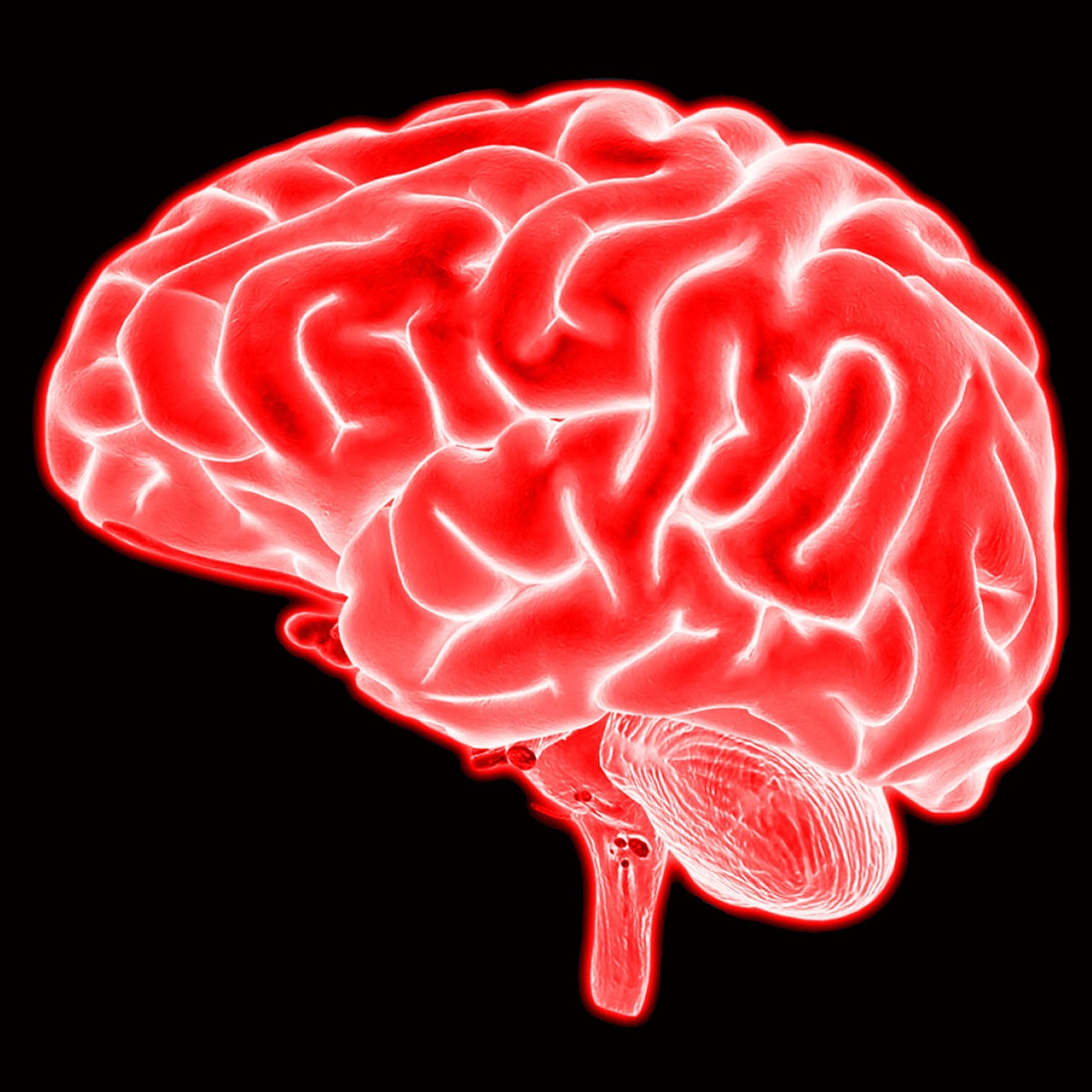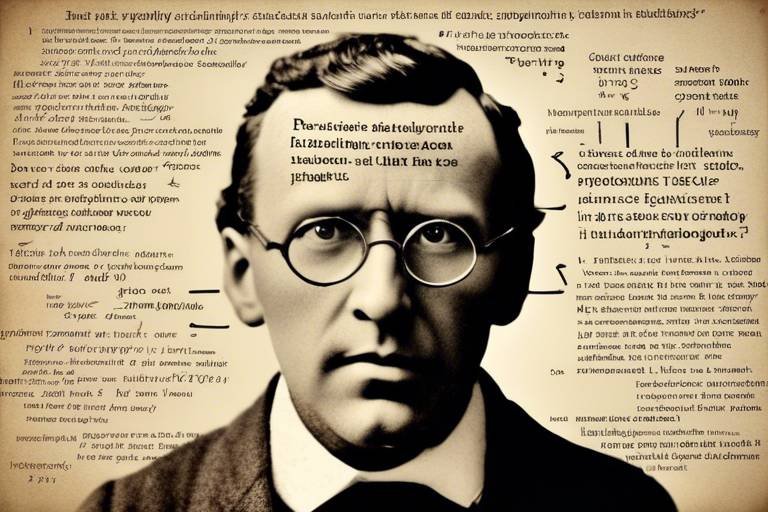The Intersection of Philosophy and Neuroscience
The relationship between philosophy and neuroscience is like a dance, intricate and compelling, where each step influences the other. At first glance, these fields may seem worlds apart: one delves into the abstract realms of thought and existence, while the other is grounded in the tangible workings of the brain. However, as we peel back the layers, we discover a rich tapestry where questions of consciousness, cognition, and human behavior intertwine, prompting us to reconsider our understanding of what it means to be human.
Imagine standing at the edge of a vast ocean, each wave representing a different theory or discovery. As the waves crash, they not only shape the shore but also reflect the depths of our understanding. Philosophy provides the questions that guide our exploration, while neuroscience offers the tools and data needed to investigate those questions. Together, they create a dialogue that pushes the boundaries of knowledge, leading to profound insights about the mind and our place in the universe.
This article will take you on a journey through this fascinating intersection, exploring how philosophical inquiries about consciousness and the mind-body problem inform neuroscientific research, and vice versa. We will delve into the implications of these interactions for our understanding of free will and the ethical considerations that arise as neuroscience continues to advance. So, buckle up as we navigate this complex landscape, where every question opens up new avenues of thought and discovery!
Consciousness is a puzzle that has intrigued philosophers and scientists alike for centuries. What is it that makes us aware of our thoughts, feelings, and surroundings? Is consciousness merely a byproduct of brain activity, or does it possess a quality that transcends physical processes? These questions are at the heart of both philosophical discourse and neuroscientific research.
Various theories have emerged to explain consciousness, ranging from the biological perspective, which views it as a function of brain processes, to more abstract notions like panpsychism, which suggests that consciousness is a fundamental aspect of all matter. Each of these frameworks offers a different lens through which we can examine the nature of conscious experience, highlighting the rich interplay between philosophy and neuroscience.
The mind-body problem is a classic philosophical dilemma that probes the relationship between our mental states and the physical processes of the body. It raises questions such as: Are the mind and body separate entities, or are they two sides of the same coin? This inquiry has profound implications for neuroscience, as it influences how researchers approach the study of the brain and behavior.
At the heart of the mind-body debate lies the contrast between dualism and physicalism. Dualists argue that the mind and body are distinct, with mental phenomena existing independently of physical processes. This perspective has historical roots in the works of philosophers like René Descartes, who famously posited that the mind is a non-physical substance.
On the other hand, physicalists contend that everything about the mind can be explained through physical processes in the brain. This view aligns with the findings of modern neuroscience, which increasingly demonstrates that our thoughts and emotions are closely tied to neural activity. Understanding these contrasting views is crucial, as they shape scientific inquiry and influence how we interpret neuroscientific data.
To fully grasp the contemporary debate between dualism and physicalism, we must look back at the historical context. Thinkers like Aristotle and Descartes laid the groundwork for our understanding of the mind-body relationship, while later philosophers and scientists challenged and refined these ideas. This historical evolution illustrates how philosophical thought has paved the way for modern scientific inquiry, creating a foundation upon which current debates are built.
In today's world, the conversation surrounding dualism and physicalism continues to evolve. Recent discoveries in neuroscience, such as the identification of neural correlates of consciousness, challenge traditional dualist views and lend support to physicalist perspectives. However, philosophical questions about subjective experience and the nature of consciousness remain unresolved, prompting ongoing discussions about the implications of these findings.
The question of free will has long been a hot topic in philosophical circles. Can we truly make choices, or are our decisions merely the result of neural processes beyond our control? Neuroscientific research has begun to shed light on this issue, revealing that many of our decisions may be initiated at the neural level before we consciously become aware of them. This revelation has profound implications for our understanding of autonomy and moral responsibility, raising questions about accountability in a world where our actions may be predetermined by our biology.
As neuroscience continues to advance, ethical considerations become paramount. The potential for breakthroughs in understanding the brain brings with it a host of moral dilemmas. How do we ensure that neuroscientific research is conducted ethically, respecting the rights and dignity of individuals? This section will explore the ethical implications of neuroscience, focusing on the responsibilities of researchers and the potential impact on society.
Neuroethics is an emerging field that addresses the ethical issues arising from neuroscience. It encompasses a wide range of topics, including:
- Privacy concerns related to brain data
- Informed consent in research studies
- The potential for cognitive enhancement and its societal implications
As we navigate these complex issues, it is essential to engage in critical discussions about the future of human enhancement and the ethical responsibilities that accompany scientific progress.
Philosophical insights can significantly inform ethical practices in the realm of mental health treatment. As neuroscientists and clinicians work together to understand and treat mental health conditions, they must consider the ethical implications of their approaches. This includes recognizing the responsibilities they bear towards patients and the importance of empathy in care.
Q: How does philosophy influence neuroscience?
A: Philosophy provides the foundational questions and frameworks that guide neuroscientific research, helping to shape our understanding of complex concepts like consciousness and free will.
Q: What is neuroethics?
A: Neuroethics is the study of the ethical implications of neuroscience, addressing issues such as privacy, consent, and the potential for cognitive enhancement.
Q: Can neuroscience prove the existence of free will?
A: While neuroscience offers insights into decision-making processes, the question of free will remains a philosophical debate, as it involves deeper considerations of autonomy and moral responsibility.

Understanding Consciousness
Consciousness is a fascinating puzzle that has captivated both philosophers and neuroscientists for centuries. It's that elusive quality of being aware of our thoughts, feelings, and surroundings—like a spotlight illuminating the stage of our minds. But what exactly is consciousness? Is it merely a byproduct of brain activity, or is it something more profound? These questions are at the heart of ongoing debates in both fields.
Philosophically, consciousness is often viewed through various lenses, each offering distinct interpretations. For instance, some philosophers argue that consciousness is a fundamental aspect of reality, akin to space and time. Others contend that it arises from complex neural processes in the brain. This divergence in understanding leads to a rich tapestry of theories, each attempting to explain how subjective experiences arise from physical phenomena.
Neuroscience, on the other hand, approaches consciousness from a more empirical standpoint. Researchers utilize advanced imaging techniques to observe brain activity and correlate it with conscious experiences. For example, studies have shown that certain areas of the brain become active when individuals engage in introspection or experience emotions. This has led to the development of various theories, such as the Global Workspace Theory, which posits that consciousness functions like a theater stage, where information is brought to the forefront for cognitive processing.
To grasp the complexities of consciousness, let’s explore some prominent theories:
- Higher-Order Thought Theory: This theory suggests that consciousness arises when we have thoughts about our thoughts. In essence, it’s like having a reflective mirror in our minds.
- Integrated Information Theory: This proposes that consciousness corresponds to the level of information integration in the brain. The more interconnected and complex the neural networks, the richer the conscious experience.
- Neural Correlates of Consciousness (NCC): Researchers seek to identify specific brain regions and activities that correlate with conscious awareness, aiming to pinpoint where and how consciousness occurs.
Despite these advancements, the nature of consciousness remains a profound mystery. Questions such as, "Can machines be conscious?" or "What happens to consciousness after death?" continue to challenge our understanding. As neuroscience progresses, it often collides with philosophical inquiries, creating a dynamic interplay that enriches both disciplines.
One of the most intriguing aspects of consciousness is its subjective quality—often referred to as "qualia." This term describes the individual instances of subjective, conscious experience, like the way a sunset looks or how chocolate tastes. How can we measure or quantify these experiences scientifically? This question highlights the limitations of current methodologies in neuroscience and underscores the philosophical implications of our findings.
Ultimately, the quest to understand consciousness is not just an academic exercise; it has profound implications for how we view ourselves as human beings. Are we merely biological machines, or is there something inherently special about our conscious experience? As we continue to explore this intersection of philosophy and neuroscience, we inch closer to unraveling one of life's greatest mysteries.
- What is consciousness? Consciousness is the state of being aware of and able to think about one's own existence, thoughts, and surroundings.
- How do philosophy and neuroscience relate to consciousness? Philosophy explores the nature and implications of consciousness, while neuroscience investigates its biological underpinnings.
- Can machines be conscious? This is a hotly debated topic; while some argue that machines can achieve a form of consciousness, others believe it is inherently tied to biological processes.

The Mind-Body Problem
The mind-body problem is a classic conundrum that has fascinated philosophers and scientists alike for centuries. At its core, it grapples with a fundamental question: How do our mental states relate to our physical bodies? Imagine your mind as a conductor, orchestrating a symphony of thoughts, feelings, and perceptions, while your body serves as the orchestra, playing out the music of your existence. But what happens when the conductor and the orchestra seem to operate in different realms? This is the essence of the mind-body problem, and it raises profound implications for our understanding of consciousness and human behavior.
Philosophers have long debated this issue, offering various perspectives that range from dualism, which posits a distinct separation between mind and body, to physicalism, which asserts that everything about the mind can be explained through physical processes. To illustrate this further, let’s break down these two primary viewpoints:
| Perspective | Description |
|---|---|
| Dualism | Suggests that the mind and body are fundamentally different substances, with the mind existing independently of the physical body. |
| Physicalism | Argues that everything about the mind can be understood through physical processes occurring in the brain and body. |
Throughout history, thinkers like René Descartes championed dualism, famously declaring, "I think, therefore I am." This perspective leads to the idea that our thoughts and consciousness exist separately from the physical realm. On the other hand, modern neuroscience tends to lean toward physicalism, suggesting that our thoughts, emotions, and identities are rooted in our brain's biological processes. So, which perspective holds more weight? The truth might lie somewhere in between, as both viewpoints offer valuable insights into the human experience.
As we navigate through contemporary discussions, we must also consider how advancements in neuroscience challenge traditional philosophical frameworks. Recent studies using brain imaging techniques have unveiled fascinating connections between neural activity and mental states, raising questions about the validity of a strict separation between mind and body. For instance, when we experience emotions, specific brain regions light up, reinforcing the idea that our mental experiences are deeply intertwined with our physical state.
Furthermore, the implications of the mind-body problem extend beyond academic discussions; they influence our understanding of free will and moral responsibility. If our thoughts and choices are merely the result of physical processes, what does that mean for our sense of autonomy? It’s a slippery slope that invites us to rethink our assumptions about personal agency and accountability.
In summary, the mind-body problem is not just an abstract philosophical dilemma; it’s a vibrant area of inquiry that bridges the gap between philosophy and neuroscience. By exploring this intersection, we can gain a deeper understanding of ourselves and the intricate workings of our minds and bodies.
- What is the mind-body problem? The mind-body problem questions how mental states relate to physical processes in the body.
- What are the main perspectives on this issue? The two primary perspectives are dualism, which separates mind and body, and physicalism, which argues for their unity.
- How does neuroscience contribute to this debate? Neuroscience provides insights through studies that link brain activity with mental states, challenging traditional views of separation.
- What implications does this have for free will? It raises questions about autonomy and moral responsibility, suggesting that our choices may be influenced by physical processes.

Dualism vs. Physicalism
When we dive into the philosophical waters of dualism and physicalism, we find ourselves navigating a complex sea of ideas that have shaped our understanding of the mind and body for centuries. At its core, dualism posits that the mind and body are distinct entities. Think of it like a classic buddy cop movie where the mind and body are partners, but they operate in different spheres. This perspective, famously championed by René Descartes, suggests that mental phenomena are non-physical and cannot be fully explained by physical processes alone.
On the flip side, we have physicalism, which argues that everything about the mind can be explained through physical processes. Imagine a well-oiled machine where every cog and wheel represents a part of the brain or nervous system, working tirelessly to produce thoughts, feelings, and consciousness. Physicalists assert that our mental experiences are entirely rooted in biological functions, challenging the dualist view by suggesting that there's no need for a separate, non-physical entity to explain our thoughts and feelings.
But how do these two perspectives influence the realm of neuroscience? The implications are vast and profound. For instance, if we lean towards dualism, we might prioritize subjective experiences in our research, focusing on how individuals perceive their consciousness. In contrast, a physicalist approach would lead researchers to investigate the brain's structure and function, looking for tangible evidence of how thoughts arise from neural activity.
To further illustrate the differences between these two viewpoints, consider the following table:
| Aspect | Dualism | Physicalism |
|---|---|---|
| Nature of Mind | Non-physical entity | Physical processes |
| Relationship to Body | Separate but interacting | Unified system |
| Research Focus | Subjective experience | Neuroscientific evidence |
| Key Proponent | René Descartes | David Papineau |
In contemporary discussions, the boundaries between dualism and physicalism are often blurred. Many modern philosophers and neuroscientists are exploring a middle ground, suggesting that while our mental experiences are rooted in physical processes, there may still be aspects of consciousness that are not entirely reducible to brain activity. This nuanced perspective opens up exciting avenues for research and debate, encouraging a more integrated approach to understanding human behavior and cognition.
As we continue to unravel the mysteries of the mind, the interplay between dualism and physicalism remains a critical focal point. Each perspective offers valuable insights, and as neuroscience progresses, it will be fascinating to see how these philosophical debates evolve. Are we merely biological machines, or is there something more profound at play in our conscious experiences? The journey to find answers to these questions is as thrilling as the destination itself.
- What is dualism? Dualism is the philosophical view that the mind and body are distinct entities, suggesting that mental phenomena are non-physical.
- What is physicalism? Physicalism is the belief that everything about the mind can be explained through physical processes, asserting that mental states are rooted in biological functions.
- How do these views impact neuroscience? Dualism may lead to a focus on subjective experiences, while physicalism emphasizes the study of brain activity and structure.
- Is there a middle ground between dualism and physicalism? Yes, many modern thinkers propose a nuanced approach that recognizes the significance of both perspectives in understanding consciousness.

Historical Context
The historical context of the mind-body problem is a fascinating journey through time, showcasing how thinkers have grappled with the intricate relationship between mental states and physical processes. This philosophical conundrum has roots that stretch back to ancient civilizations, where early philosophers like Plato and Aristotle laid the groundwork for understanding the human experience. Plato's theory of forms suggested a dualistic approach, positing that the mind exists apart from the body, while Aristotle, in contrast, embraced a more integrated view, emphasizing the unity of body and soul.
Fast forward to the Renaissance, and we encounter the influential work of René Descartes, who famously declared, "Cogito, ergo sum" ("I think, therefore I am"). Descartes introduced a clear dichotomy between the mind, a non-material entity, and the body, a material one. This dualism sparked intense debate, leading to the emergence of various schools of thought. As the scientific revolution unfolded, philosophers began to question the validity of dualism. Thomas Hobbes, for instance, argued for a physicalist perspective, asserting that everything, including thoughts and emotions, could be explained through physical processes.
In the 19th century, the advent of neuroscience began to reshape the landscape of this discussion. As scientists like Charles Darwin explored the biological underpinnings of behavior, the focus shifted toward understanding the brain's role in shaping consciousness. This period marked a significant turning point, as the field of neuroscience began to provide empirical evidence that challenged longstanding philosophical beliefs. The connection between brain activity and mental states became increasingly evident, prompting philosophers to reconsider their positions.
Today, the dialogue between philosophy and neuroscience continues to evolve. The rise of cognitive science and advancements in neuroimaging techniques have opened new avenues for exploring the mind-body relationship. Modern philosophers such as Daniel Dennett and Patricia Churchland advocate for a more integrated approach, suggesting that understanding consciousness requires a synthesis of philosophical inquiry and neuroscientific research.
To summarize, the historical context of the mind-body problem reveals a rich tapestry of ideas and debates that have shaped our current understanding. From ancient philosophies to contemporary neuroscience, the interplay between these fields remains crucial in unraveling the mysteries of consciousness and human behavior.
- What is the mind-body problem? The mind-body problem explores the relationship between mental states (like thoughts and feelings) and physical processes (like brain activity).
- Who are some key philosophers in the history of the mind-body problem? Key figures include Plato, Aristotle, René Descartes, Thomas Hobbes, and modern philosophers like Daniel Dennett and Patricia Churchland.
- How has neuroscience influenced philosophical perspectives? Neuroscience provides empirical evidence that challenges or supports philosophical views, prompting a reevaluation of concepts like consciousness and free will.
- What are the implications of understanding consciousness? Understanding consciousness can impact various fields, including psychology, ethics, and artificial intelligence, influencing how we perceive human behavior and decision-making.

Contemporary Perspectives
In the ever-evolving landscape of neuroscience and philosophy, contemporary perspectives offer a rich tapestry of ideas that challenge traditional views on the mind-body relationship. As researchers dive deeper into the mysteries of the brain, they uncover complexities that often blur the lines between dualism and physicalism. For instance, recent advancements in neuroimaging technologies have allowed scientists to observe brain activity in real-time, providing tangible evidence that mental states are closely linked to physical processes. This has led many to reconsider the strict separation proposed by dualists, suggesting instead a more integrated approach.
One of the most exciting developments in this area is the emergence of theories like emergentism. This perspective posits that consciousness arises from complex interactions within neural networks, rather than being a separate entity from the physical brain. Imagine consciousness as a symphony, where each instrument (or neuron) plays its part, but the music (or conscious experience) only emerges when they all come together. This analogy beautifully illustrates how contemporary thinkers are beginning to view consciousness as a product of intricate biological processes rather than something that exists independently.
Moreover, the debate surrounding free will has gained traction in light of neuroscientific findings. Many philosophers argue that if our thoughts and decisions are merely the results of neural activity, then the notion of autonomy becomes questionable. This has sparked discussions about moral responsibility: if our actions are predetermined by brain chemistry, can we truly hold individuals accountable for their behavior? The implications are profound, leading to a reevaluation of legal systems and ethical standards in society.
To further illustrate these contemporary perspectives, let's consider a few key themes that have emerged from recent discussions:
- Interdisciplinary Collaboration: The fusion of philosophy, neuroscience, and psychology is fostering innovative approaches to understanding the human experience.
- Neuroscientific Evidence: New findings challenge long-held beliefs about the separation of mind and body, pushing for a more unified model of understanding.
- Ethical Implications: As we uncover the biological underpinnings of behavior, ethical considerations regarding free will and personal responsibility are becoming increasingly important.
In summary, contemporary perspectives on the mind-body problem illustrate a shift towards a more cohesive understanding of consciousness and cognition. As neuroscience continues to unveil the intricate workings of the brain, philosophical discourse must adapt to these revelations. The dialogue between these fields not only enriches our comprehension of human behavior but also prompts us to reflect on the ethical ramifications of our newfound knowledge. The intersection of philosophy and neuroscience is not just an academic exercise; it is a vital conversation that shapes our understanding of what it means to be human.
What is the mind-body problem?
The mind-body problem refers to the philosophical question of how mental states, such as beliefs and desires, relate to physical states, such as brain activity. It explores whether the mind and body are distinct entities or if they are fundamentally interconnected.
How does neuroscience influence our understanding of consciousness?
Neuroscience provides empirical evidence about brain function and structure, which can inform and challenge philosophical theories about consciousness. Advances in neuroimaging allow researchers to observe how specific brain regions correlate with conscious experiences, leading to new insights into the nature of awareness.
What are the ethical implications of neuroscience?
As neuroscience advances, ethical questions arise regarding privacy, consent, and the potential for cognitive enhancement. These concerns necessitate careful consideration of how neuroscientific findings are applied in society, particularly in areas like mental health treatment and criminal justice.

Neuroscience's Impact on Free Will
The question of free will has been a hot topic in philosophy for centuries, and now, with the advancements in neuroscience, it has taken on a new dimension. Imagine standing at a crossroads, where one path leads to the age-old philosophical debates about autonomy and moral responsibility, while the other leads to the cutting-edge findings of brain science. Which way do we go? Neuroscience has begun to unravel the intricate workings of the brain, shedding light on how our thoughts, decisions, and actions are influenced by neural processes. This intersection raises profound questions: Are we truly in control of our choices, or are they merely the products of brain activity?
To understand this impact, it’s essential to consider how neuroscientific research has provided evidence that certain brain activities precede conscious decision-making. Studies using brain imaging techniques, like fMRI, have shown that our brains can initiate actions before we are even aware of them. For instance, researchers have recorded brain activity that predicts a decision several seconds before a person consciously acknowledges making that choice. This phenomenon can make one wonder: if our brains are firing away in the background, are we just passengers in our own lives?
Furthermore, the implications of these findings extend beyond mere curiosity. They challenge the traditional notions of moral responsibility. If our choices are determined by neural processes beyond our conscious control, how can we hold individuals accountable for their actions? This dilemma leads to a fascinating discussion about the nature of responsibility in a world where free will may be an illusion.
Neuroscience also opens up avenues for exploring the concept of determinism. Determinism posits that every event, including human actions, is determined by preceding events in accordance with the laws of nature. This perspective raises questions about the extent to which our lives are pre-scripted. Imagine a grand play where every actor has a role defined by their script—does that leave room for improvisation?
As we delve deeper into these discussions, we encounter various perspectives on free will that can be categorized as follows:
- Libertarianism: This view asserts that individuals have genuine free will and that our choices are not pre-determined.
- Compatibilism: Compatibilists argue that free will and determinism are not mutually exclusive, suggesting that free will can exist even in a deterministic framework.
- Hard Determinism: This perspective denies the existence of free will, claiming that all actions are determined by prior states of the universe.
Each of these views presents its own implications for how we perceive human behavior and accountability. As neuroscience continues to evolve, it will undoubtedly influence these philosophical discussions, leading to new understandings of what it means to be human.
In summary, the impact of neuroscience on our understanding of free will is profound and multifaceted. It invites us to reconsider our assumptions about autonomy, responsibility, and the very nature of decision-making. As we navigate this complex terrain, the dialogue between philosophy and neuroscience will remain crucial, shaping our understanding of ourselves and our place in the world.
- What is free will? Free will is the ability to make choices that are not determined by prior causes or divine intervention.
- How does neuroscience challenge the concept of free will? Neuroscience suggests that many decisions are made unconsciously before we are aware of them, raising questions about our control over our actions.
- What are the implications of neuroscience for moral responsibility? If our choices are influenced by brain processes, it complicates how we assign blame or praise for our actions.
- Can free will and determinism coexist? Compatibilists argue that free will can exist within a deterministic framework, allowing for moral responsibility despite underlying neural processes.

Ethics in Neuroscience
As we venture deeper into the realms of neuroscience, the ethical considerations surrounding this field become increasingly crucial. The rapid advancements in our understanding of the brain and its functions open up a Pandora's box of ethical dilemmas that society must grapple with. Imagine a world where we can manipulate memories or enhance cognitive abilities—sounds like a sci-fi movie, right? But this is the reality we are approaching, and it raises important questions about privacy, consent, and moral responsibility.
One of the primary ethical concerns in neuroscience is the issue of informed consent. When conducting research or applying treatments, it's essential that participants fully understand what they are agreeing to. This is particularly challenging in neuroscience, where the complexities of the brain can make it difficult for individuals to grasp the implications of the research. Researchers must ensure that participants are not just signing a waiver, but are genuinely informed about the potential risks and benefits involved.
Moreover, the potential for cognitive enhancement through neuroscience brings another layer of ethical complexity. Should we allow enhancements that could create a divide between those who can afford such treatments and those who cannot? This could lead to a society where inequality is exacerbated, as some individuals gain significant advantages over others. The question then arises: what does it mean to be human if our cognitive abilities can be artificially enhanced? How do we define the essence of our humanity in a world where our minds can be modified?
Another pressing issue is the potential misuse of neuroscientific findings. For instance, if we can predict behavior based on brain activity, how do we prevent this information from being used for manipulation or coercion? The implications for criminal justice are profound—could neuroscience be used to determine guilt or innocence? This raises ethical questions about free will and accountability, challenging the very foundations of our legal system.
To navigate these complex issues, the field of neuroethics has emerged, focusing on the ethical, legal, and social implications of neuroscience. Neuroethicists advocate for guidelines and frameworks that prioritize the well-being of individuals and society as a whole. They emphasize the necessity of interdisciplinary dialogue, involving not only neuroscientists but also ethicists, psychologists, and policymakers to create a comprehensive approach to these challenges.
In the context of mental health, the ethical considerations become even more pronounced. As we explore treatments that target the brain's chemistry and functioning, we must consider the responsibilities of neuroscientists and clinicians. They are not just scientists; they are also caretakers of human lives. This dual role necessitates a commitment to ethical practices that prioritize patient welfare above all else. For instance, when treating mental health disorders, clinicians must balance the potential benefits of treatment with the risks of side effects and the long-term implications of their interventions.
In summary, as neuroscience continues to evolve, the ethical landscape surrounding it must be carefully navigated. The questions we face are not just academic; they are deeply personal and societal. As we push the boundaries of what is possible, we must remain vigilant about the moral implications of our discoveries. After all, the brain is not just an organ; it is the seat of our thoughts, emotions, and ultimately, our humanity.
- What is neuroethics? Neuroethics is a field that examines the ethical, legal, and social implications of neuroscience, focusing on issues such as consent, privacy, and cognitive enhancement.
- Why is informed consent important in neuroscience? Informed consent ensures that participants understand the risks and benefits of research or treatment, which is crucial for ethical practice.
- How could neuroscience impact mental health treatment? Neuroscience can provide insights into brain function that may lead to new treatments, but it also raises ethical questions regarding the responsibilities of clinicians.
- What are the risks of cognitive enhancement? Cognitive enhancement could lead to increased inequality and ethical dilemmas regarding what it means to be human.

Neuroethics
Neuroethics is an emerging field that grapples with the ethical dimensions of neuroscience. As our understanding of the brain deepens, we find ourselves at a crossroads where scientific advancement meets moral responsibility. Imagine a world where we can enhance cognitive abilities or even alter memories—sounds like science fiction, right? Yet, this is becoming increasingly plausible, raising important questions about who we are and what it means to be human.
At the heart of neuroethics lies a series of ethical dilemmas that emerge from the capabilities of neuroscience. For instance, consider the implications of using brain-imaging technologies in legal settings. Should a brain scan be admissible as evidence in court? What if it reveals a predisposition to criminal behavior? These questions challenge our understanding of free will and moral responsibility. The intersection of neuroscience and law opens up a Pandora's box of ethical considerations that society must address.
Moreover, the potential for cognitive enhancement raises concerns about equity and access. If brain-enhancing technologies become available, who gets to use them? Will they be accessible to the wealthy, creating a divide between those who can afford enhancements and those who cannot? This scenario could lead to a new form of inequality, where enhanced individuals have advantages in education, employment, and social status. It's a slippery slope that requires careful navigation.
Neuroethics also delves into issues surrounding privacy and consent. As neuroscience progresses, the ability to read and interpret brain activity raises questions about the sanctity of our thoughts. Should individuals be able to consent to having their brain data collected, and how can we ensure that this information is protected from misuse? The balance between scientific inquiry and individual rights is delicate, and it demands robust ethical guidelines.
| Neuroethical Issues | Description |
|---|---|
| Cognitive Enhancement | Ethical implications of enhancing human capabilities through neuroscience. |
| Privacy Concerns | Issues surrounding the collection and use of brain data. |
| Legal Implications | The admissibility of neuroscientific evidence in court. |
| Access and Equity | Concerns about who can benefit from neuroscientific advancements. |
As we continue to explore these profound questions, it is essential for ethicists, scientists, and the public to engage in dialogue. The future of neuroscience holds immense potential, but with that potential comes the responsibility to ensure that advancements are made ethically and equitably. We must ask ourselves: How do we want to shape the future of our minds? The answers we find will not only influence the realm of neuroscience but will also reflect our values as a society.
- What is neuroethics?
Neuroethics is the study of the ethical implications of neuroscience, focusing on issues such as cognitive enhancement, privacy, and the moral responsibilities of neuroscientists. - Why is neuroethics important?
As neuroscience advances, understanding the ethical implications is crucial to ensure that scientific progress aligns with societal values and individual rights. - How does neuroethics relate to free will?
Neuroethics examines how neuroscientific findings impact our understanding of free will and moral responsibility, especially in legal contexts. - What are some current debates in neuroethics?
Current debates include the ethics of cognitive enhancement, the use of brain data in legal settings, and the implications of neuroscience for mental health treatment.

Implications for Mental Health
As we delve into the intersection of philosophy and neuroscience, one of the most compelling areas of exploration is the implications for mental health. The relationship between our understanding of the mind and the brain can significantly influence how we approach mental health treatment. With advancements in neuroscience, we are starting to uncover the biological underpinnings of mental health disorders, shedding light on conditions that were once solely viewed through a philosophical lens.
Philosophical insights into the nature of the self and consciousness can inform ethical practices in mental health treatment. For instance, consider the concept of autonomy. Patients often desire to be active participants in their treatment plans, but how does this fit into a world where neuroscience suggests that many of our decisions may be influenced by subconscious processes? This raises crucial questions about the nature of free will and the ethical responsibilities of mental health professionals.
Neuroscientists and clinicians must navigate the delicate balance between respecting patient autonomy and providing the best possible care. This could lead to a more nuanced understanding of mental health, where treatment is not just about addressing symptoms but also about understanding the individual's experience. By integrating philosophical perspectives, practitioners can cultivate a more holistic approach to mental health that respects the complexity of human experience.
Moreover, the implications extend beyond individual treatment. As neuroscience continues to evolve, it prompts society to reconsider its views on mental health. For example, the stigma surrounding mental health issues can be challenged by a better understanding of the brain's role in these conditions. When we recognize that mental health disorders often have biological bases, it becomes easier to foster empathy and support for those affected.
In light of these considerations, it is essential for mental health professionals to engage in ongoing education about the latest neuroscientific findings. This not only enhances their understanding but also equips them to communicate effectively with patients about their conditions. For instance, when discussing treatment options, clinicians can explain how certain therapies may alter brain chemistry, thus empowering patients with knowledge about their treatment.
Furthermore, ethical considerations in mental health treatment are becoming increasingly important. As we explore the potential for cognitive enhancement through neuroscientific advancements, we must ask ourselves: What are the moral implications of enhancing cognitive abilities? Should we prioritize treatment over enhancement? These questions challenge us to think critically about the future of mental health care and the responsibilities of those in the field.
| Key Considerations | Implications for Mental Health |
|---|---|
| Patient Autonomy | Respecting patient choices while providing guidance based on neuroscientific findings. |
| Stigma Reduction | Promoting understanding of mental health as a complex interplay of biology and experience. |
| Ethical Responsibility | Balancing treatment and enhancement in mental health practices. |
In conclusion, the implications of neuroscience for mental health are profound and multifaceted. By marrying philosophical insights with scientific discoveries, we can not only enhance our understanding of mental health disorders but also improve the ethical standards of care. As we continue to explore this intersection, it is crucial for both practitioners and society to remain open to new ideas and approaches that respect the intricacies of the human experience.
- How does neuroscience impact mental health treatment? Neuroscience provides insights into the biological bases of mental health disorders, allowing for more effective treatment strategies.
- What role does philosophy play in understanding mental health? Philosophy prompts critical thinking about concepts such as autonomy and the nature of self, which can inform ethical practices in treatment.
- Are there ethical concerns regarding cognitive enhancement? Yes, the potential for cognitive enhancement raises questions about equity, consent, and the nature of mental health care.
Frequently Asked Questions
- What is the relationship between philosophy and neuroscience?
Philosophy and neuroscience intersect in fascinating ways, as both fields seek to understand the complexities of the human mind and behavior. Philosophy provides theoretical frameworks that help interpret neuroscientific findings, while neuroscience offers empirical data that can validate or challenge philosophical theories. This dynamic relationship enriches our understanding of consciousness, cognition, and human behavior.
- What are the main theories of consciousness?
There are several theories of consciousness, including dualism, physicalism, and panpsychism. Dualism posits that mind and body are separate entities, while physicalism argues that everything about the mind can be explained in terms of physical processes in the brain. Panpsychism suggests that consciousness is a fundamental feature of all matter. Each of these theories brings unique insights into the nature of conscious experience.
- What is the mind-body problem?
The mind-body problem is a philosophical dilemma that explores how mental states, such as thoughts and emotions, relate to physical states, like brain activity. This complex issue raises questions about whether our mental experiences are distinct from our physical existence or if they are intrinsically linked. Various perspectives, including dualism and physicalism, attempt to address this problem, influencing how neuroscience approaches the study of the mind.
- How does neuroscience affect our understanding of free will?
Neuroscience has significant implications for the concept of free will. Research suggests that many decisions may be made subconsciously before we are even aware of them, challenging traditional notions of autonomy and moral responsibility. This raises important questions about accountability and the nature of human choice, prompting philosophical discussions about the implications of neuroscientific findings on our understanding of free will.
- What are the ethical considerations in neuroscience?
As neuroscience advances, ethical issues become increasingly critical. Topics such as privacy, consent, and the potential for cognitive enhancement provoke important discussions about the moral responsibilities of researchers and clinicians. Neuroethics examines these issues, emphasizing the need for ethical guidelines to ensure that neuroscientific research and its applications respect individual rights and societal values.
- How can philosophy inform ethical practices in mental health?
Philosophical insights can greatly inform ethical practices in mental health treatment by encouraging a deeper understanding of patient autonomy, consent, and the complexities of mental illness. By integrating philosophical perspectives, mental health professionals can navigate ethical dilemmas more effectively, ensuring that they respect the dignity and rights of their patients while providing compassionate care.



















